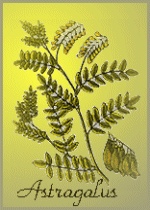Apply your focus
& intent to create
optimal wellness
& health.
• Sitemap
• Articles
• Headlines
• Coaching
• Shoppe
• Resources
• Trophies
• Win Awards
• Dialogue
• Courses
• Subscribe
• About Us
• Disclaimer
• Privacy
• Art Meditation
• Contact Us
• Main
|
Keep Hayfever at Bay by June Kaminski, RN MSN
Recent research indicates that certain nutrients and herbs can be beneficial
to hayfever sufferers. Adding these natural and complementary aids to the diet
can provide added ammunition against unpleasant hayfever symptoms.
In the Western hemisphere, Summer is in the air, bringing sunshine, new
growth and longer daylight hours. Along with these uplifting changes comes tree
and grass pollens, dust, and other triggers that can cause Hayfever or Allergic
Rhinitis attacks in some people. Common symptoms of hayfever include nasal
discharge, sneezing, headache, itching of the eyes and nose, lethargy, aching
teeth, sinus pressure, loss of taste and blocked nasal breathing. The inner
membrane of the nasal passages become swollen and often unbearable.
The
basic medical treatment for hayfever includes antihistamines, corticosteroids
and guidelines to avoid direct contact with the offensive allergens. Sometimes
more aggressive treatment is used to build up the body's immune resistance
through the administration of a series of injections or oral drops containing
minute doses of extracts from the particular allergens involved. Recent research
indicates that certain nutrients and herbs can also be beneficial to hayfever
sufferers. Adding these natural and complementary aids to the diet can provide
added ammunition against unpleasant hayfever symptoms.
Nutritional Recommendations B
Vitamins are highly recommended for all allergy sufferers including those
experiencing hayfever. Although particular B vitamins are identified as more
valuable than others, it is wise to take a balanced B vitamin complex
preparation to ensure that all of the B vitamins remain balanced in the body.
Look for a supplement containing Thiamine (B1), Riboflavin (B2), Niacin (B3),
Pyridoxine (B6), Pantothenic Acid, Folic Acid, B12, Biotin, Inositol and Choline
in balanced proportions. B
Vitamins are highly recommended for all allergy sufferers including those
experiencing hayfever. Although particular B vitamins are identified as more
valuable than others, it is wise to take a balanced B vitamin complex
preparation to ensure that all of the B vitamins remain balanced in the body.
Look for a supplement containing Thiamine (B1), Riboflavin (B2), Niacin (B3),
Pyridoxine (B6), Pantothenic Acid, Folic Acid, B12, Biotin, Inositol and Choline
in balanced proportions.
Vitamin C (500 mg) combined with
Bioflavonoids help to boost the immune system and have an anti- inflammatory
effect on the nasal passages.
Vitamin A (5,000 to 10,000 IU per
day) also boost the immune system function and enhance the resilience of the
nasal passage cells.
Vitamin E (400 IU per day) boosts the
elasticity of the nasal mucous membrane cells.
Food Allergy Precautions:Careful attention to the diet is also
warranted during hayfever season. People who are allergic to natural substances
in the environment may also be allergic or sensitive to particular foods as
well. Make a point of avoiding certain foods such as wheat products, eggs, milk
and dairy, citrus, chocolate, shellfish, nuts and nut butters.
Herbal Supplement RecommendationsMa Huang or Chinese Ephedra
provides a natural source of ephedrine and pseudo-ephedrine which help to
constrict the sinus blood vessels relieving some of the sneezing, nasal
pressure, secretion and itchiness. Look for  herbal decongestants that contain Ephedra. Do be cautious though: use of this
preparation should be restricted to one week at a time to avoid potential
central nervous system overstimulation.
herbal decongestants that contain Ephedra. Do be cautious though: use of this
preparation should be restricted to one week at a time to avoid potential
central nervous system overstimulation.
Echinacea and Goldenseal
make a fine combination to add to the treatment regime for hayfever. Echinacea
acts as an anti-viral agent while Goldenseal is anti-bacterial which help to
prevent sinusitis. Goldenseal is also soothing to the throat and sinus mucous
membranes. These two herbs help to boost the immune system and work to release
toxic metabolites that build up during prolonged allergic responses.
Licorice Root strengthens the adrenal glands which aids in
dealing with hayfever reactions.
Astragalus, another Chinese herb
helps to strengthen the body's defense system or protective energy to help in
the resistance of infections.
Elder Tree Leaves ease congestion
and inflammation in hayfever, sinusitis and allergic responses.
Stinging Nettles contains properties that help to relieve allergy
symptoms including coughs, runny nose and congestion. A caution though: pregnant
women should refrain from using nettles.
Site is optimized for all browsers - for screen resolution 800x600 - for 16 bit or better color.
© June Kaminski, MSN - 2001 - 2005 -Healing Intent.com - All rights reserved.
Design by June Kaminski, Visions of Adonai Design
|
|

